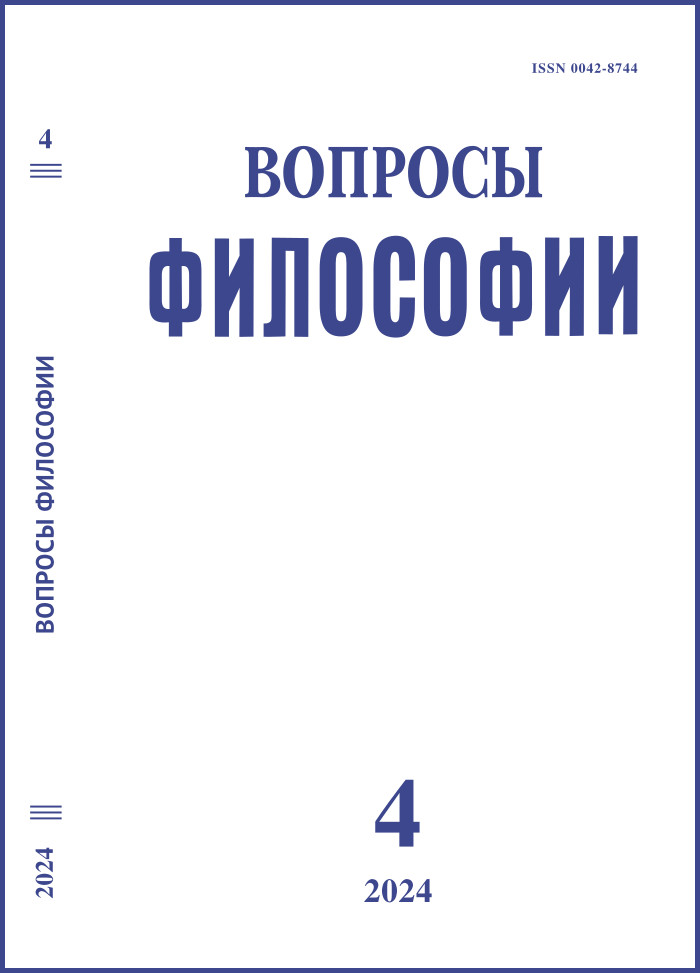Activity Cognitivistics under the Conditions of Digitalization
DOI:
https://doi.org/10.21146/0042-8744-2024-4-42-52Keywords:
activity approach, activity cognitivistics, digitalization, consciousness theory, thinking, communication, action, activity epistemology, activity cyber-physics, metasubject environment.Abstract
The article discusses the key philosophical ideas and principles in the cycle of fundamental works by V.A. Lektorsky devoted to the study and consideration of modern forms of cognition in multifacet and variated social practice. The authors demonstrate that a number of philosophical ideas and conceptual positions presented in the works of the Russian philosopher can become the basis for the next step in the development of activity-based views about the processes of cognition under the conditions of digitalization. As the most important three conceptual positions are emphasized in the article. Firstly, V.A. Lektorsky shows that in the new cognitive research trend of the 4E Cognition, thinking in the form of a semantic suprandividual and transempirical dimension of both consciousness and cognition plays an important role, what comes into argument with traditional cognitive science of analytical philosophy, which stands on the positions of naturalism. Secondly, consciousness in the processes of cognition is organized as heterarchical system – it has different types of semantic and categorical hierarchies in different periods of the process of cognition; heterogeneous – includes multifold elements: meanings, signs, symbols, distinctions, schemes, models, concepts, notions, algorithms; heterochronous – several processes unfold simultaneously in consciousness at different times. At last, V.A. Lektorsky adheres to the position of constructive realism, according to which he asserts the real existence of objects of knowledge independent of human consciousness in the form of social, natural, individual-mental and historical processes. These philosophical ideas and positions as well as some others, that are considered in the article, can be presented as a certain psychological and educational platform for the development of a meta-subject environment for engineering education.

